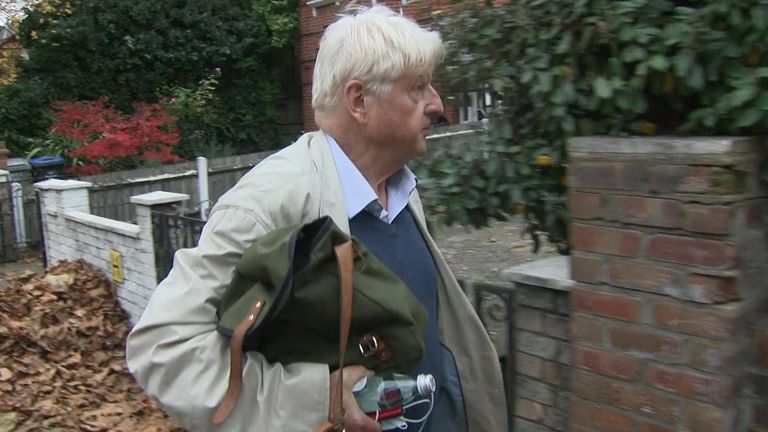Boris Johnson has told MPs that “cyber flashing” – the act of sending obscene pictures to others over WiFi networks – should be made illegal.
The prime minister made the comments as he was quizzed by a committee of senior MPs on the government’s efforts to combat violence against women and girls.
Mr Johnson also told MPs he would be “willing to look at” the introduction of compulsory consent classes in schools, and he railed against internet companies who neglect “responsibility for what appears on their systems”.
However, the prime minister appeared to dismiss a call for public sexual harassment to be made a specific crime.
Mr Johnson’s appearance before the House of Commons liaison committee, made up of the chairs of all select committees, came after Sky News hosted a cross-party panel of prominent female MPs on how to confront violence against women.
One of those MPs, Conservative MP Caroline Nokes, told Sky News that the prime minister’s father, Stanley Johnson, touched her inappropriately at a Conservative Party conference in 2003.
He has said he has “no recollection of Caroline Nokes at all”.
Ms Nokes, a member of the liaison committee, on Wednesday asked the prime minister about the prospect of making public sexual harassment a specific crime, as a means to “intervene earlier” before “those who are harassing women become sex offenders”.
But Mr Johnson suggested there should be a focus on tackling existing crimes, rather than creating new ones.
“I think that what we need to do is rather than expand the sphere of activity that we criminalise, we need to prosecute people more effectively and more successfully for things that are already criminal,” the prime minister said.
“And there is an abundance of statute that is not now being properly enforced. And that’s what we’re putting our investment into.”
Ms Nokes also asked the prime minister whether new government legislation, the Online Safety Bill, would address the “easy access” to “extreme, violent, degrading pornography”.
Mr Johnson acknowledged that criminal offenders are “coarsened and degraded by this stuff” and said the government would “see what we can do”, although he said the “technological difficulties are quite extreme”.
Pressed on whether the government would bring legislation to force internet companies to deal with the issue, Mr Johnson added: “It’s time the online giants realised that they cannot simply think of themselves as neutral pieces of infrastructure; they are publishers, and they have responsibility for what appears on their systems.”
Follow the Daily podcast on Apple Podcasts, Google Podcasts, Spotify, Spreaker
The prime minister also told Ms Nokes that he was “willing to look at” compulsory consent classes in schools.
“I think that kids nowadays are given much, much better and more balanced instruction about these questions than was the case even 10 years ago, never mind 20, 30 years ago,” he said.
“But there is a way to go, and it is certainly something that I am willing to look at.”
Answering further questions from the committee, Mr Johnson told fellow Conservative MP Julian Knight that cyber flashing should be illegal.
Cyber flashing involves the sending of obscene pictures to others over peer-to-peer Wi-Fi networks, such as AirDrop. Some people use the facility to send obscene pictures to strangers, often while they travel on trains or buses.
“I don’t care whether flashing is cyber or not – it should be illegal,” the prime minister said.
He also challenged Mr Knight to “draft something” to “capture” the problem of cyber flashing within proposed new legislation in the government’s Online Safety Bill.
Source: Read Full Article




